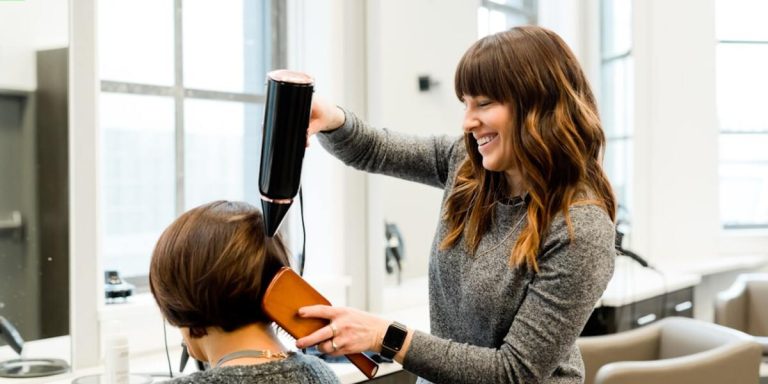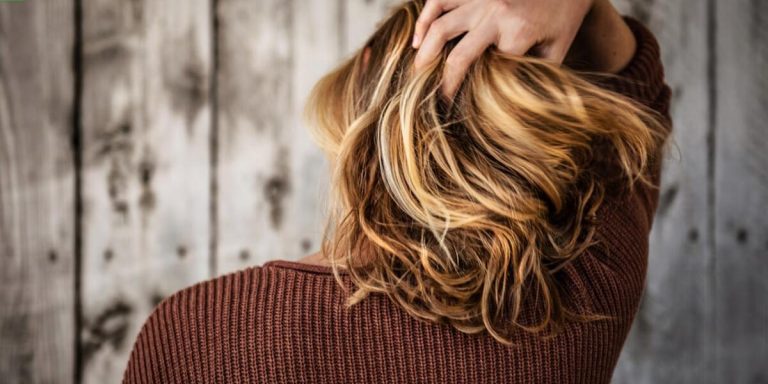Scalp Pain and Hair Loss Treatment: Understanding the Connection for Effective Solutions
Understanding the connection between scalp pain and hair loss treatment can prove crucial in finding effective solutions for thinning or shedding strands. Various conditions cause discomfort at the roots, contributing to a variety of hair complications that might require different treatments. Together with accurate diagnosis and understanding these intertwined issues, you’re better equipped to tackle your hair problems head-on.
In this article, we will delve into the complex relationship linking scalp health to overall hair growth patterns. We’ll explore various causes behind alarming symptoms like tenderness on your crown coupled with noticeable reduction in volume. Additionally, we’ll present clinically-backed treatment plans designed not just to halt further loss but promote healthy regrowth as well– offering comprehensive strategies meant for long-term relief from both scalp pain and associated hair concerns.
Did you know?
Did you know? Chronic scalp pain can indicate inflammation, which is a known factor in hair loss. Studies have shown that treating the underlying scalp condition can also help remedy hair thinning issues (source: American Academy of Dermatology).
Understanding Scalp Pain and Hair Loss: Causes and Connections
Scalp pain alongside hair loss is not just a cosmetic concern; it can be disheartening and interfere with your day-to-day activities. Research shows the two may share a significant connection, highlighting how crucial it is to comprehend this relationship for effective treatment strategies.
Knowing the root cause of scalp discomfort might be instrumental in targeting an appropriate intervention for hair fall. Dermatological conditions like seborrheic dermatitis or psoriasis often result in painful itchy scalps which eventually contribute to hair thinning and shedding due to constant inflammation damaging the follicles over time.
Personalized treatments effectively manage these issues by addressing each specific facet simultaneously. Combine topical remedies to ease scalp irritation with dietary supplements that fortify follicular functions to restore happiness and healthy hair. In 2023, substantial advancements have led to safer yet potent solutions for ‘scalp-pain induced’ hair loss concerns, including:
- Low-Level Laser Therapy (LLLT)
- Platelet Rich Plasma therapy (PRP)
These therapies promise radical results.
Identifying Common Triggers for Scalp Discomfort and Hair Thinning
In the journey to treating hair loss, it’s crucial to swiftly identify the causes. One such cause that often accompanies thinning tresses is scalp discomfort or pain. Let’s delve into some common triggers of this duo concern.
Firstly, dermatological conditions like seborrheic dermatitis and psoriasis can lead to both scalp pain and hair loss. These disorders are chronic in nature but can be managed effectively with proper care, which may include over-the-counter treatments or prescribed medications depending on severity.
Secondly, a disorder known as alopecia areata could also be at play here, especially if your hair thinning occurs in patches rather than evenly across your head – another symptom of which being tender spots on one’s scalp due to inflammation.
Haircare practices shouldn’t go unexamined either; utilizing heat styling tools excessively or wearing tight hairstyles regularly – think ponytails or braids – contributes significantly towards inflaming the scalp leading eventually to potential baldness.
Unrelenting stress constitutes yet another source for these challenges- acute mental pressure manifests physically too by triggering telogen effluvium- a condition causing excessive shedding post traumatic events around three months later.
The Link Between Scalp Health and Hair Follicle Function
A healthy scalp is synonymous with strong, thick hair. Why? Because the scalp houses tiny structures called hair follicles which are responsible for growing strands of our hair.
The underlying connection between scalp health and how well these follicles function often goes ignored in regular discussions about hair loss.
Firstly, beneficial oils produced naturally by your skin known as sebum protect both your scalp and your hairs’ roots – ensuring they remain anchored securely inside their respective follicle. When you have an unhealthy or disrupted scalps due to problems such as infections, inflammation or soreness – conditions collectively referred to as ‘scalp pain’, it may lead to irregularities in the production of this crucial oil resulting in weakened roots and eventually – yes guessed right- Hair Loss!
Secondly, blood flow is another key factor here that deserves mention. Our bodies pump nutrients required for growth through blood vessels located throughout our body including those leading up into each individual hair follicle on our heads! If something were causing decreased circulation like tight hairstyles (think ponytails), high stress levels etc., then fewer nutrients reach these vital areas ultimately impacting overall growth patterns thus contributing towards patterns of thinning locks.
Comprehensive Overview of Current Treatments for Scalp Pain Associated with Hair Loss
Scalp pain, often associated with hair loss, has become a common concern for many individuals. The sensation can range from mild irritation to severe discomfort making it not just a cosmetic issue but also one that significantly impacts the quality of life. Fortunately, advancements in medical technology and research have led us to various treatments that focus on providing relief while also addressing the root cause.
One innovative approach includes topical applications which directly target scalp inflammation resulting mainly from conditions like Alopecia Areata or Traction Alopecia. These products typically contain active ingredients such as minoxidil and corticosteroids known for their anti-inflammatory properties and proven effectiveness in stimulating hair growth.
Additionally, progress in low-level laser therapy (LLLT) offers new hope to those suffering from this condition. This non-invasive treatment uses light energy to rejuvenate damaged cells promoting healthier hair follicles thus reducing both scalp pain and instances of hair fall.
On top of these, oral medication courses comprising drugs like Finasteride are gaining popularity due to its twofold benefits: easing scalp sensitivity linked with pattern baldness & simultaneously facilitating regrowth by blocking DHT -the hormone responsible for shrinking your tiny strands’ factories- Hair Follicles! However careful guidance under trained dermatologists is advised when going down this route owing potential side effects.
Medicinal Approaches to Alleviate Scalp Inflammation and Promote Regrowth
In the journey to combat hair loss, one of the key challenges that we often face is scalp pain and inflammation. With advances in research and technology, there are now several effective medicinal approaches available which aim not only at relieving this discomfort but also promoting healthy hair regrowth.
The first line of treatment typically involves over-the-counter (OTC) medications like ibuprofen or aspirin for immediate relief from scalp soreness linked with excessive hair fall. While these drugs don’t directly affect your follicles’ health and growth phase, they can make dealing with other treatments more manageable by easing associated pain.
Moreover, topical ointments laden with capsaicin offer another healing route worth exploring. Found naturally in chili peppers, it has been proven to reduce substance P – a chemical involved in sending pain signals – hence lessening discomfort when applied on inflamed areas regularly.
Besides focusing purely on symptom management via OTC medicines or topicals though is a holistic approach towards fostering stronger follicles ready for steady growth: prescription-based therapies designed specifically for countering various factors influencing our tresses’ general well-being such as hormonal imbalance due autoimmune issues etcetera .
Holistic Strategies for Managing Symptoms and Supporting Scalp Recovery
In dealing with hair loss, scalp pain can pose an additional hurdle. Yet many find it overlooked in standard treatment plans. Herein lies the importance of adopting a holistic approach in managing these symptoms and supporting recovery.
Delve into proven strategies to manage discomfort and promote overall scalp health.
1. **Gentle Scalp Massage:** Regularly massaging your scalp stimulates blood flow, reduces tension, and promotes healing by releasing trapped inflammation causing substances from damaged cells.
2. **Use Cooling Packs:** Similar to how you’d treat any other inflamed area on our body – cooling packs can bring immediate relief reducing both pain and inflammation for better comfort throughout the day.
4.Avoiding harsh chemical-based shampoos: Too often we underestimate the damage commercial shampoo products fortified with tough chemicals cause; switching to milder organic alternatives is recommended as they’re gentler on our sensitive scalps thus mitigating excessive irritation which could potentially be worsening your condition.
Innovations in Hair Loss Management Targeting Scalpain
In the sphere of hair loss management, novel approaches are now focusing on scalp pain as a crucial factor. A growing number of experts concur that a healthy scalp environment is integral to robust hair growth and overall follicle well-being. Historically, most treatments aimed at minimizing or preventing hair fall primarily targeted aspects like nutritional deficiencies, hormonal imbalances or genetically-induced balding patterns.
However, recent advancements in trichology propose an underexplored facet- addressing issues related to inflammation and discomfort in the scalp region. In 2023’s dynamic landscape of innovative treatments for combating hair loss coupled with scalp sensitivity involves techniques such as low-level laser therapy (LLLT), therapeutic serums fortified with anti-inflammatory agents and natural extracts known for their soothing properties.
Low-Level Laser Therapy stimulates cellular activity in your scalp’s dermal layers using specific wavelengths of light. The increased blood circulation boosts nutrient uptake and reduces inflammation in the roots, leading to more comfortable treatment processes.
Therapeutic serums offer dual actions:
- Promoting regrowth
- Soothing itching and redness often associated with chronic conditions.
Breakthrough Therapies in Treating Dermal Irritation Linked to Alopecia
Dealing with hair loss can be both physically and emotionally distressing. When this is coupled with scalp pain, it only adds to the discomfort. Today, significant strides have been made in the treatment of dermal irritation linked to alopecia – commonly known as hair loss.
Discoveries on how radial shockwave therapy can alleviate scalp pain associated with thinning strands give newfound hope for victims of this condition. Hardly invasive yet highly effective, these therapies promote blood circulation in affected areas leading to better nutrient supply that triggers enhanced follicle health and growth.
Another exciting development involves laser light therapy sessions which not only targets reducing inflammation but also amplifies cellular activity under your skin encouraging more robust hair regeneration. A non-surgical way that’s gaining popularity due its safety profile plus a track record backed by clinical studies demonstrating impressive success rates.
Nutraceutical advances haven’t taken a backseat either! The discovery of certain vitamins like B7 (Biotin) improving protein synthesis needed for thicker locks has steered medical science towards natural treatments too. Supplements containing potent antioxidants combat oxidative stress – one key factor contributing to premature baldness and flaky scalps thus providing dual benefits: enhancing overall strand strength while soothing sore spots simultaneously.
The advent technology-driven devices created specifically targeting sensitive scalps suffering from hair shedding isn’t left out; Scalp cooling caps provide gentle relief through therapeutic temperatures ensuring minimal side effects during usage periods- another testament towards personal comfort being equally central when designing treatments apart from their effectiveness alone.
The Role of Technology in Diagnosing Underlying Issues Causing Scalpain
As technology advances, it is playing a more crucial role in diagnosing the underlying issues causing Scalpain – an essential step towards effective hair loss treatments. Within this sphere of innovation, certain methodologies are now making headway that could potentially revolutionize how we address scalp pain and its link to hair loss.
One such methodology involves comprehensive diagnostic tools that use enhanced imaging technologies. By leveraging algorithms for focused scanning techniques, these tools provide clarity over root causes of Scalpain like never before. High-definition images not only enable experts to spot unusual patterns but also aid them in forming a better understanding about individual cases which was until recently difficult to achieve without invasive procedures.
Moreover, AI-powered technologies have opened up new possibilities as well by offering predictive analytics capabilities. This allows medical professionals not just to diagnose but predict potential fallout when early signs of Scalpain manifest themselves at initial stages itself – saving patients from further discomfort while halting progression toward advanced stages of chronic conditions related with hair loss disorder.
Conclusion
In wrapping up, understanding the connection between scalp pain and hair loss treatment is no less than unlocking a complex mystery. However, once you comprehend this relation, dealing with such issues becomes significantly more manageable. A knowledgeable approach combined with suitable treatments can indeed turn the tables in your favor!
We hope that this article has helped shed some light on what may seem like an intricate puzzle of “scalp pain and hair loss treatment”. Remember – knowledge is power! So why not empower yourself even further?
Feel free to browse around our website for more enlightening information related to hair loss treatments. We’re here supporting your journey towards healthier tresses!







